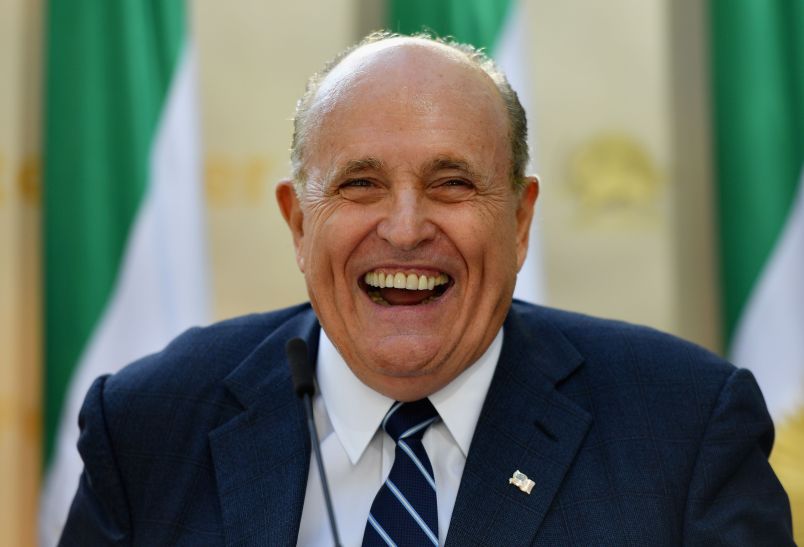A Manhattan federal judge agreed Friday to appoint a special master to review materials gathered from search warrants executed last month on Rudy Giuliani. In doing so, the judge denied a ream of requests from Giuliani for the right to decide what evidence prosecutors would be able to investigate in the case.
Giuliani “is not entitled to a preview of the Government’s evidence in an ongoing investigation before he has been charged with a crime,” the order reads.
In a curt ruling, U.S. District Judge Paul Oetken for the Southern District of New York flatly benchslapped Giuliani and conservative legal personality Victoria Toensing for demanding that they be permitted to conduct a pre-indictment review of evidence gathered in the case.
The two also asked Oetken to treat previous warrants approved in the case as essentially subpoenas, and to limit prosecutors’ investigative authority to that mode of demand as well. Giuliani justified that request in part by stating that he is an attorney, and therefore is entitled to a higher standard of protection.
The ruling comes as investigations into Giuliani’s activities around Ukraine gain pace. The New York Times reported on Thursday that Brooklyn federal prosecutors are probing Ukrainian cronies of the former NYC mayor’s who fed him smears about the Bidens, as part of an investigation into whether that constituted illegal meddling in the 2020 election.
Ken McCallion, a New York City attorney who represented a former Ukrainian prime minister, told TPM that he had referred to clients to SDNY prosecutors in early 2020 as part of the Giuliani probe.
“One reason for the length of the investigation was linking Giuliani to specific compensation or payments, which was murky at best, at least when I had contact with them,” McCallion said, adding that prosecutors were trying to see “if they could trace specific payments to Giuliani or one of his firms.”
Legal experts described Giuliani’s arguments about the search warrants against him as staggeringly unlikely to succeed and completely out of step with accepted practice in criminal cases, in which defendants are only allowed to argue over what evidence can be admitted post-indictment.
“In effect, they ask the Court to require the Government to proceed by subpoena
rather than by search warrant,” Oetken wrote. “But lawyers are not immune from searches in criminal investigations.”
“There is no basis for compelling the Government to produce this information now, during an ongoing grand jury investigation,” he added.
At the center of all this are warrants that prosecutors from the Southern District of New York executed on Giuliani’s home and office in April, and on Toensing’s cell phone at the same time.
The government took 11 of the former NYC mayor’s personal electronic devices and seven devices belonging to his firm, Giuliani Partners LLC.
Joseph Bondy, an attorney representing an associate of Giuliani’s charged in a separate case, wrote in a poorly redacted filing last week that prosecutors had also seized the email accounts of two Ukrainians and the devices of a third in the course of the Giuliani probe.
The case of another personal attorney to former president Trump also looms large over the proceedings. In that case, involving Michael Cohen, the judge appointed a special prosecutor to sort out evidence.
Oetken described the Cohen case as “analogous,” and ruled that a special master would be appropriate.
“Giuliani and Toensing do not appear to dispute that the appointment of a special master is appropriate,” Toensing noted.
Oetken added that the parties would have to come up with a list of candidates to serve as special master by June 4.






